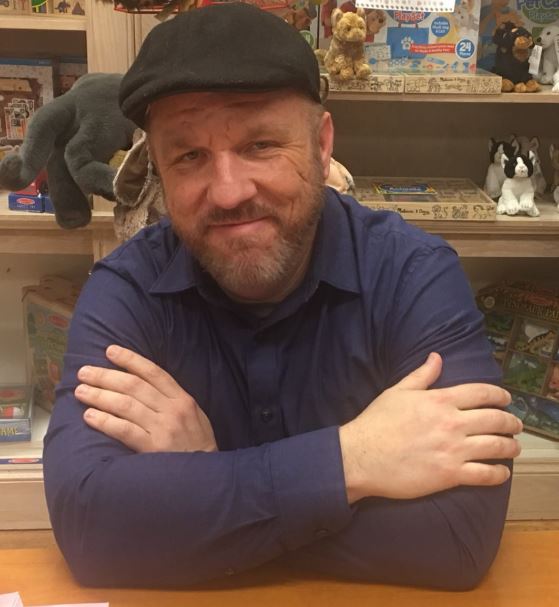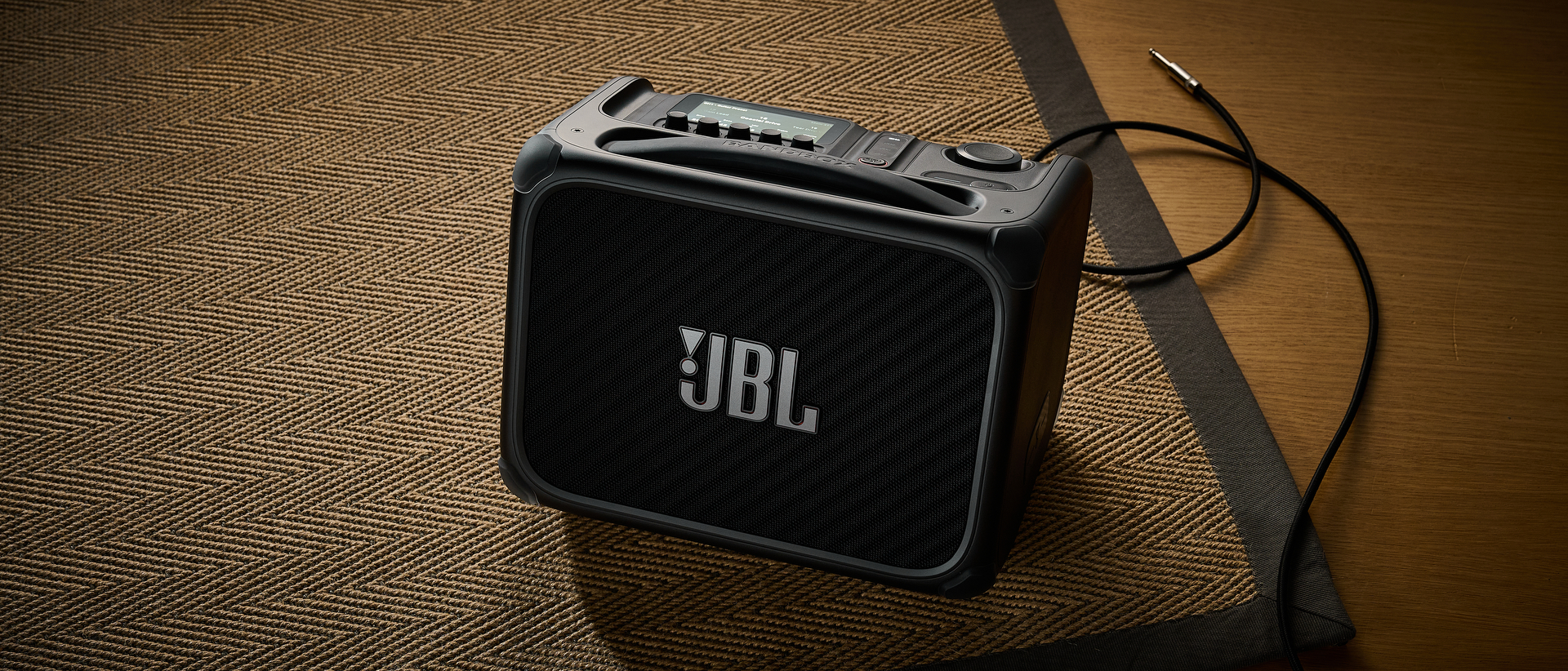‘Rockabilly Riot’: Brian Setzer Talks New Album, Gretsch Guitars and Future of Rockabilly
All the latest guitar news, interviews, lessons, reviews, deals and more, direct to your inbox!
You are now subscribed
Your newsletter sign-up was successful
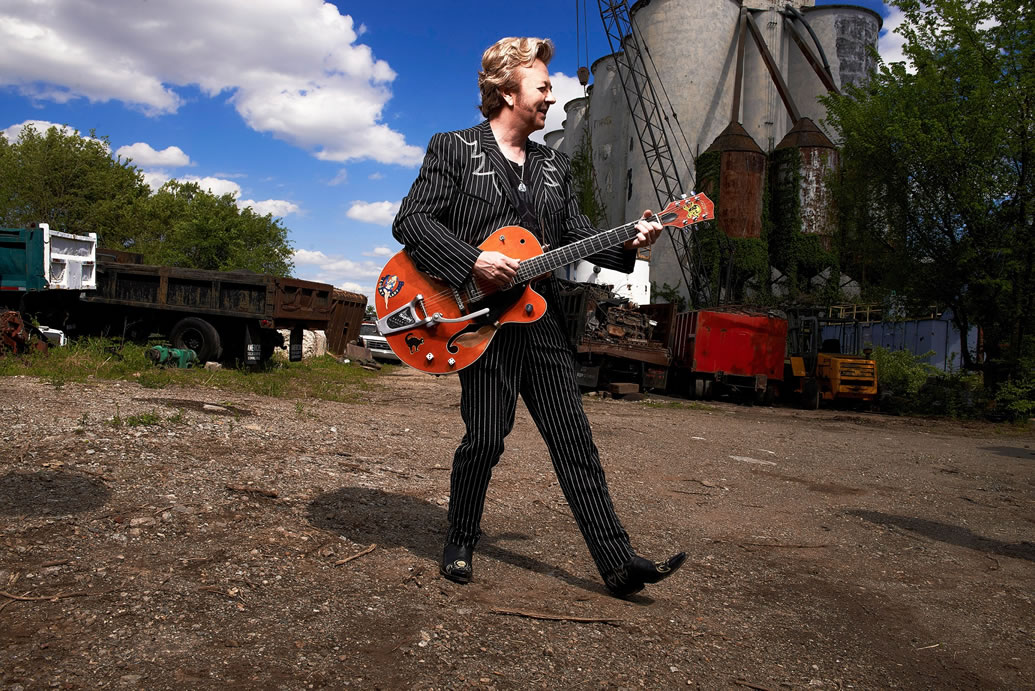
Following last year’s successful Christmas tour with his 18-piece orchestra, iconic guitarist, songwriter and three-time Grammy winner Brian Setzer entered the studio to get back to his rockabilly roots — with incredible results.
Setzer’s new album, Rockabilly Riot: All Original, which will be released August 12 via Surfdog Records, is pure, straight-ahead rockabilly that features 12 new, original songs. Along with his trademark twang and fretboard fire, Setzer is backed by three musicians who are among the best at their craft — Mark Winchester (bass), Kevin McKendree (piano) and Noah Levy (drums).
The album, which was recorded in Nashville, was produced by Peter Collins, who handled those same duties for Setzer’s Vavoom! and The Dirty Boogie. The result is a cross-mix of early Stray Cats and Setzer’s solo records, with an emphasis on a fresh, modern rockabilly sound.
Setzer first captured the hearts of guitarists everywhere as founder and frontman of Stray Cats, whose signature songs “Rock This Town," “(She's) Sexy & 17” and “Stray Cat Strut” introduced the sound and attitude of rockabilly to a new generation of rock fans in the early Eighties.
I recently spoke to Setzer about Rockabilly Riot: All Original(which is available now for pre-order), his early days, guitars and what the future holds for rockabilly music.
GUITAR WORLD: How would you describe the sound of Rockabilly Riot?
To me, it sounds a little bit like a mixture of an album I had called Ignition and the first Stray Cats album. The production of it is straight forward, but it really is songs first. Then I make them into rockabilly just by me playing them.
All the latest guitar news, interviews, lessons, reviews, deals and more, direct to your inbox!
What makes rockabilly so special?
It’s based in the blues, which is kind of the basis of it all. Rock and roll, rockabilly, country, swing, jazz — it all started from the blues. Anything that seems to come from something honest works for me. I like to say that rockabilly is like the bad brother who goes out late and doesn’t come back [laughs]. It was probably too risqué for its time and never really gained the traction it should have.
Do you consider this album a sequel of sorts to Ignition, considering both have songs about roosters and chickens?
Well, Mark Winchester [bass] says that any song about barn yard animals is fine by him. I guess it was inspired by Mark’s “Rooster Rock." [laughs]
Speaking of Mark, you’re joined by some amazing players on this album. Can you speak to what it’s like working with Mark, Kevin McKendree and Noah Levy?
It reminds me of watching the All-Star Game in baseball. You know that anything you throw at them, they’re going to catch or going to hit. It’s fun making a record with guys like that, just like it was with Jim and Lee from the Stray Cats or the big band. They’re all top players, so you know you’re going to get a great performance. Once you sit down and play, work on the songs and gel, it all comes together and you’ve got a first-place team.
What was the writing process like for this album?
It’s interesting. When you start writing, you really have to get a spark or something to light the fuse. The first song I wrote for this album was “Vinyl Records,” and the spark was my daughter listening to songs on her iPod. She had the little peas in her ear and I pulled them out and listened and said, “Ah, I really don’t like that. It doesn’t sound good.”
That’s when she said, “Well, that’s just because you don’t like the band.” I said, “No, it’s not about the music.” Then I showed her a stereo I had sitting at home. I pulled out an old record and put it on so she could hear what it sounded like. She flipped, and it was a victory for Dad! Now, she and her friends go out and hunt down vinyl records. That was the spark that really got that song going for me lyrically. Musically, I had this riff lying around that I thought was cool. It was just a blues riff in C but it counts down all of the notes in the blues scale. It was something I hadn’t really heard anybody do yet. Once I had those two things, it just kind of snowballed from there.
The song “Rockabilly Blues” has an autobiographical theme to it. Was that your intention?
Yeah, that’s right. I was just sitting there finger picking a blues/rockabilly thing on a guitar that I’ve had for 40 years. I started thinking about the idea of making it personal and decided to write the song about the guitar and me.
What was the recording process like?
It was a no-stress record. To go in with Peter [Collins] was like going in with a buddy. We recorded it in Nashville, and what I did differently this time was arrange all of the songs together beforehand. We recorded all of the tracks and arranged them and then I gave the guys a CD and had them listen to it and live with it for a month and half. Then right after our Christmas tour, we all went straight into the studio. It was easier and more fun to have everything ready and then just go in and rock it out. There are no overdubs on this album except for the vocal.
What inspired you to first pick up the guitar?
The first real inspiration I had was George Harrison. I remember when I first heard the Beatles on a jukebox. At the time, I was so young I didn’t even really know what was making the sound that I liked. Then there was a record store on the corner with a picture hanging up that said “The Beatles." Once I saw George holding his guitar, I said, “Wow! So cool!” That was the first spark.
Then later on, after it had cemented itself in place, I was really blown away by Eddie Cochran. I remember in the late Seventies no one really knew who he was. But once I saw his record (the black and white Legendary Masters Series), I knew I wanted to look like him. And after I had heard the songs, that just completed it for me. I said, “That’s it! [laughs].
Did the Stray Cats find it difficult finding its niche in those early years?
I remember people used to think, “What the heck are these guys doing?” [laughs]. It’s kind of like Fifties rock and roll, but it’s not. This was the guitar-based, bad-ass cousin of that. But we built it up just like any other band. Whether you were in a blues band or a punk band at the time, everyone had to pay their dues and bang around in the back of a van. There was no instant overnight thing. It was a good learning experience climbing the ropes.
What’s your setup like these days?
I don’t use pedals. I just use the Roland Space Echo and mess around with the settings. If I want more of a “rock” sound, I’ll just turn the volume up. Then when I want the “billy” sound, I’ll turn the volume down to get it a little more twangy and then add a bit more delay on it. That’s really the only thing that I use.
Tell me a little about your guitars.
I have three that play really well. I’ve got the Stray Cat Gretsch, another ’59 that is pretty much my main guitar, and then my friends at TV Jones just found me a wicked one. I think it’s a ‘60 model that really just has the stuff. I’ve also got my new line of Gretsch guitars that I always take with me on the road.
What first attracted you to the Gretsch?
I had always wanted one because of George and Eddie. I just loved their sound and my ear was drawn to that sound rather than to a Les Paul. Back in the Seventies, you couldn’t really find a 6120 because they had stopped making them. But when I did find one and plugged it in, I was smitten. It was exactly what I was looking for.
Can you tell me the origin of the Stray Cats song “Rock This Town”?
We were all tired of the whole disco era and one night, me and Slim Jim [Phantom] snuck into a bar. I remember we looked at the jukebox and saw that it was all still disco and we were both really pissed off about it. I think that was the spark that got it off the ground and helped me to write something that was rock and roll instead of something that was dominating the airwaves.
What do you think the future holds for rockabilly music?
If you follow history, it always seems to stick its head above water, sees what the world is like and then goes back under. It had its spike in the Fifties, then the Stray Cats brought it back, and now you’ve got people like Imelda May who are having success with it. I think rockabilly will always be there because it’s so good and just keeps regenerating itself. Whether it’s in the public eye or not, people will always know it’s there.
'Rockabilly Riot' is available now for pre-order.
James Wood is a writer, musician and self-proclaimed metalhead who maintains his own website, GoJimmyGo.net. His articles and interviews are written on a variety of topics with passion and humor. You can follow him on Twitter @JimEWood.
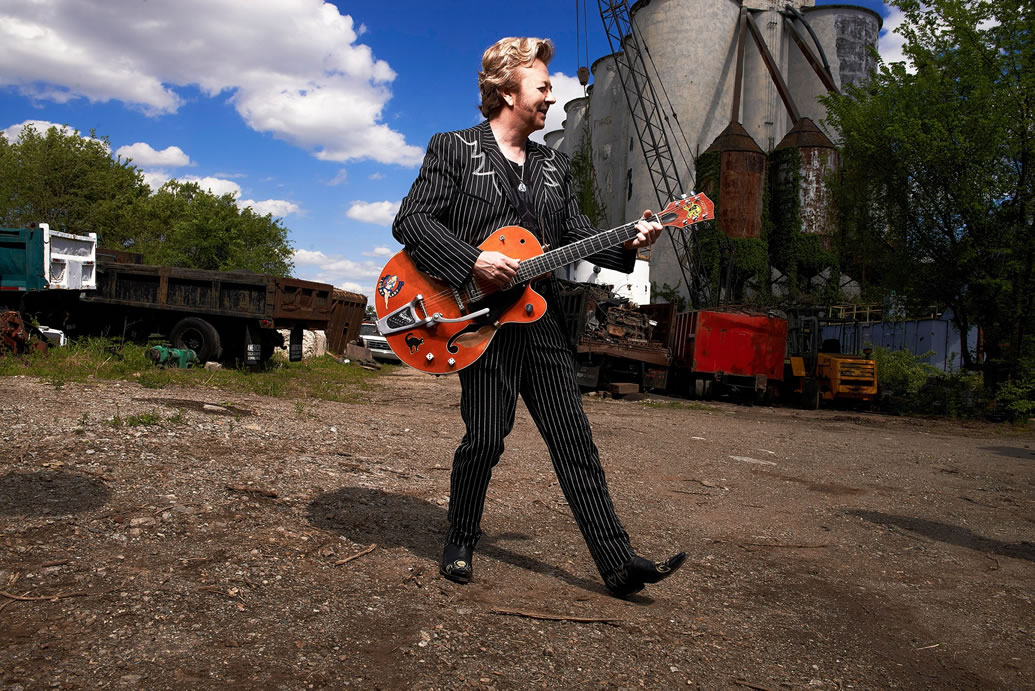
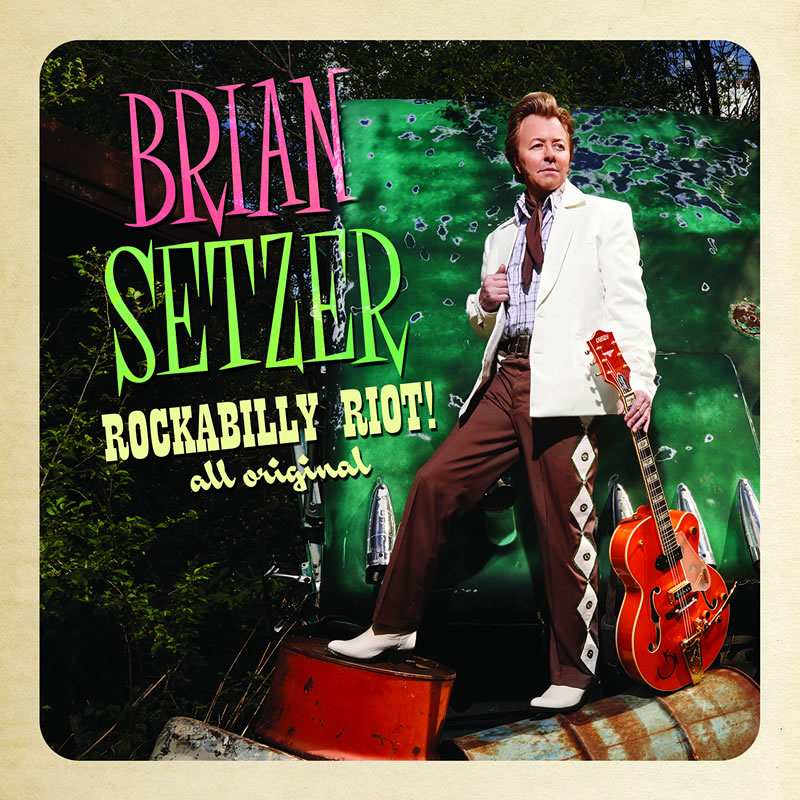
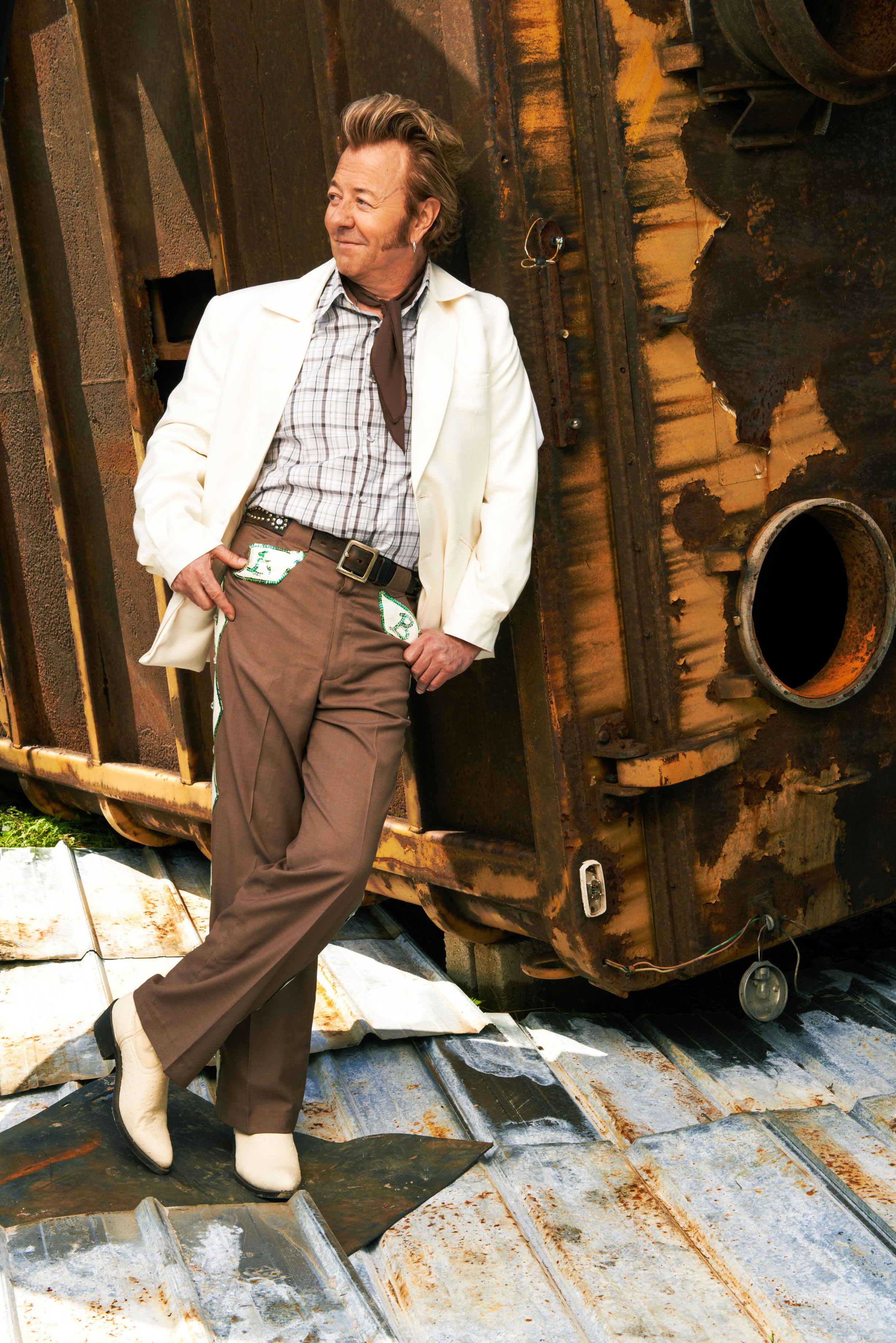
James is a guitarist and freelance writer who's interviewed some of the biggest names in music. He is the author of four books and his writing credits include work for Guitar World, AXS and Yahoo! as well as for his hometown newspaper where he writes on a variety of topics with both passion and humor. As a guitarist, he's performed everywhere from local bars and nightclubs to some of the biggest stages in front of thousands of music fans.
